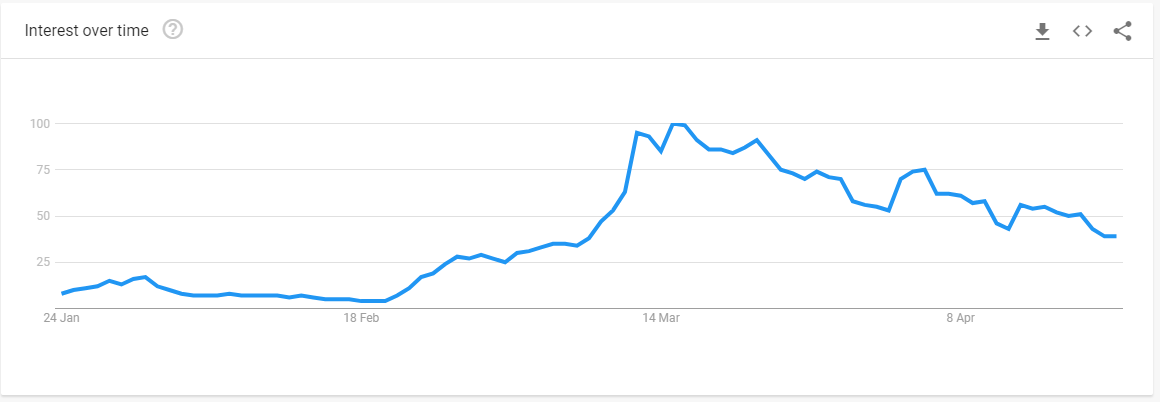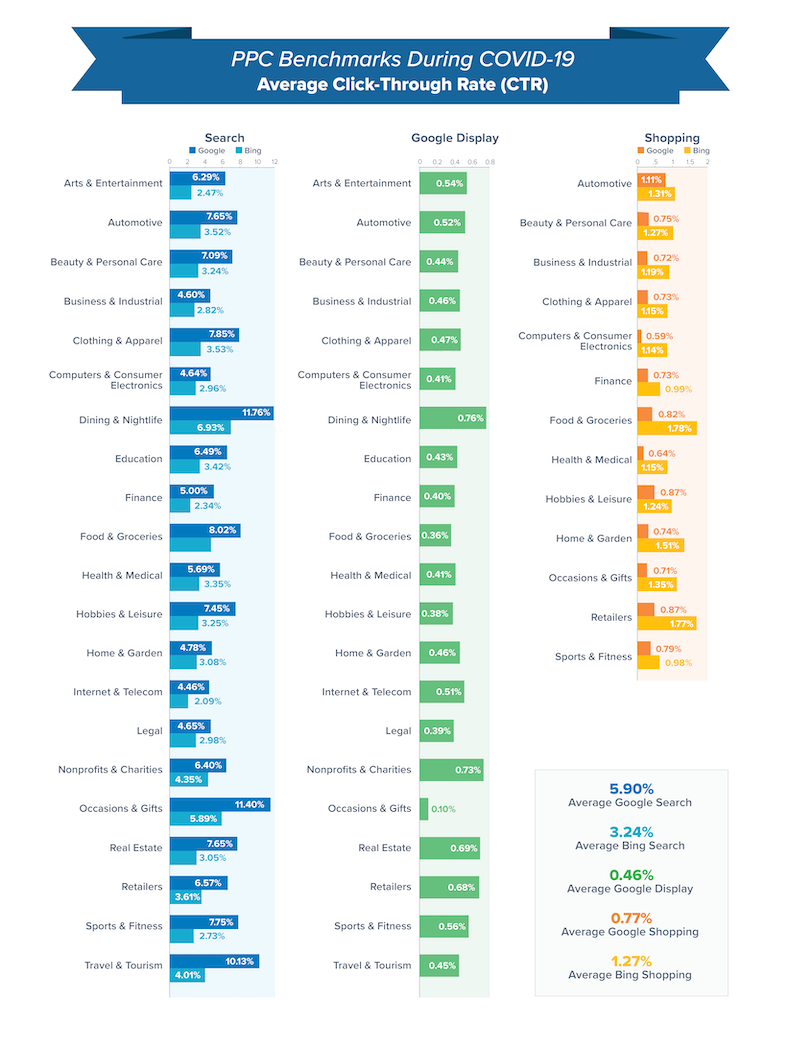A review of the current situation and tips for how businesses can monitor their PPC efforts
We’re pretty far into this global pandemic and most businesses around the world have been impacted by the coronavirus and this is no exception for the world of PPC. We don’t know how long this will last but already we’ve seen that many businesses have had to stop all paid activity due to circumstances they’ve found themselves in - unless you are a toilet paper manufacturer then that’s a different story…

It's a fact. The impact on search is inescapable. According to Google, search interest worldwide for ‘coronavirus’ has increased by +260% since the first week of February and interest has continued to remain relatively high over the last few months. As coronavirus is a hot media topic of discussion around the world - this increase is no surprise; and we’ve seen small spikes in interest before from the likes of the ‘Zika Virus’ but nothing on this scale...
Probably the most interesting thing about this surge in search; is the consumer response to this pandemic.
Which sparks the question - how is this pandemic affecting consumer behaviour?
Average CTR has increased
As people are stuck indoors; consumer behaviour has shifted significantly - according to wordstream click-through rate for Google search campaigns has increased since February.

As we find ourselves indoors with nothing to entertain us but a screen, many industries have seen increased SERP impressions such as health and beauty, non-profit business and steaming services since the outbreak began. Unsurprisingly, CTR for gifting and occasions has increased as many consumers find themselves only able to send gifts online and celebrate virtually.
But not all the increases mean big bucks for companies. The increase in travel and tourism is most likely negatively impacting businesses as people are unable to travel and many consumers are going online to cancel holidays and flights.
How can businesses adapt to these changes?
The pandemic is seriously affecting our PPC efforts and so we have no choice but to change how we conduct our business; and as consumer behaviour changes, we have to adapt our ad campaigns. How?
Check for drops in traffic
Online and paid search reflects the market. During this time your product/service might not be of interest to the consumer. There’s nothing you can do about it apart from monitor it. If clicks and impressions drop then the likelihood is that conversions will drop. It’s the sad truth. Keep monitoring it and in the near future you might be able to make changes.
Amend your ads - be more sensitive
COVID-19 has impacted individuals on a personal level world-wide, so the risk of inadvertently coming off as insensitive or even exploitative is higher than ever right now. It is a good idea to check your ads for use of insensitive words...
- Avoid: “capitalize,” “advantage,” “offer,” “gain,” “profit”
- Carefully use: “opportunity,” “make the most”
- Adopt your ads language towards words like “contribute,” “connect,” “play a role,” “navigate,” “cope,” “respond” if possible.
Consider adopting your display ads towards indoor images rather than outdoor or images of large groups of individuals to directly reflect the current circumstances.
Don’t forget - although your message may need to adapt to the new circumstances you still need to supply information, give value to your audience and be in tune with their needs as a consumer.
Manage communication
If you’ve had to slash budgets to stay afloat during this time, you most likely have more time to focus your efforts on managing your customer relationships. Being proactive as a brand during this crisis will build the basis for strong customer relationships when we come out of this crisis. And when interest pipes up again and you can up your ad spend; your business will be ready for a possible influx in interest.
In case you would have any questions or are struggling with your AdWords campaigns our specialists are here to help.
References: